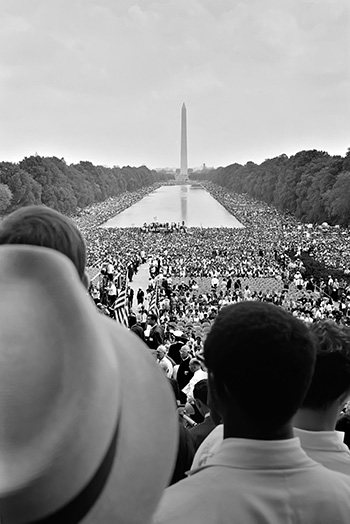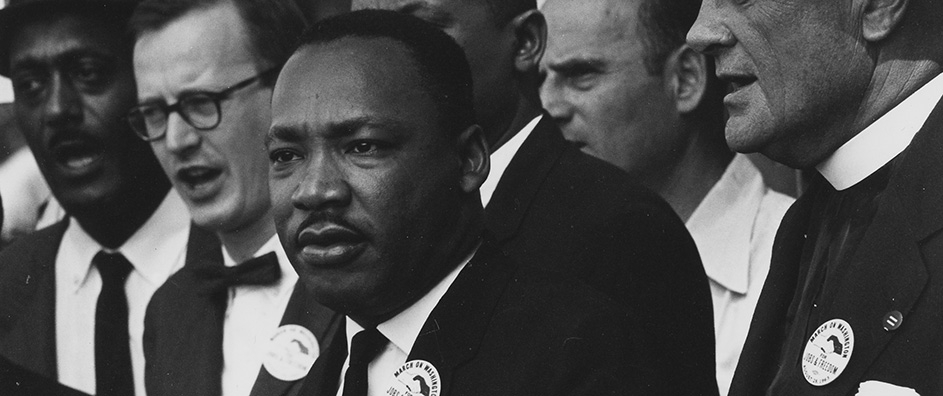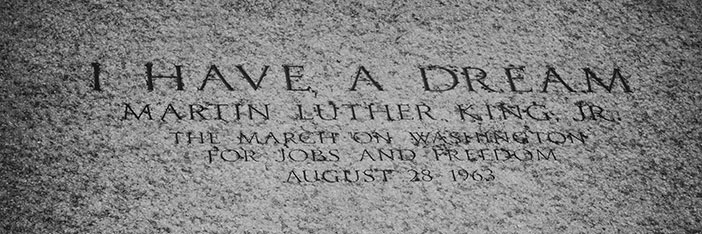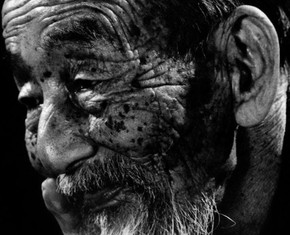The views expressed in our content reflect individual perspectives and do not represent the authoritative views of the Baha'i Faith.
Today, as the nation and the world celebrate the Reverend Doctor Martin Luther King, Jr.’s birthday, you’ll most likely hear these famous quotes repeated over and over again: “I have a dream” or “I have been to the mountain-top”. What you probably won’t hear is Dr. King’s most infamous speech, the one other civil rights leaders begged him not to deliver, the one that shocked his followers in the civil rights movement and galvanized the peace movement, and the one that called for the unity of all humanity – his address to the nation announcing his opposition to the war in Vietnam.
On April 4, 1967, the Dr. King delivered his powerful and now almost-forgotten speech “Beyond Vietnam: A Time to Break Silence,” in the Riverside Church in New York City. Dr. King announced, on that day in 1967, that he not only opposed the war in Vietnam, but that he called upon America and the world to undergo “a true revolution in values.” He said:
A true revolution of values will soon cause us to question the fairness and justice of many of our past and present policies…. A true revolution of values will soon look uneasily on the glaring contrast of poverty and wealth…. A true revolution of values will lay hand on the world order and say of war, “This way of settling differences is not just.”
But then, in the most surprising and stunning section of his speech that day, Dr. King’s great oratorical skills came powerfully to bear on his true topic:
A genuine revolution of values means in the final analysis that our loyalties must become ecumenical rather than sectional. Every nation must now develop an overriding loyalty to mankind as a whole in order to preserve the best in their individual societies. This call for a world-wide fellowship that lifts neighborly concern beyond one’s tribe, race, class and nation is in reality a call for an all-embracing and unconditional love for all men. This oft misunderstood and misinterpreted concept — so readily dismissed by the Nietzsches of the world as a weak and cowardly force — has now become an absolute necessity for the survival of man. When I speak of love I am not speaking of some sentimental and weak response. I am speaking of that force which all of the great religions have seen as the supreme unifying principle of life. Love is somehow the key that unlocks the door which leads to ultimate reality. This Hindu-Moslem-Christian-Jewish-Buddhist belief about ultimate reality is beautifully summed up in the first epistle of Saint John:
Let us love one another; for love is God and everyone that loveth is born of God and knoweth God. He that loveth not knoweth not God; for God is love. If we love one another God dwelleth in us, and his love is perfected in us.”
… And if we will only make the right choice, we will be able to transform this pending cosmic elegy into a creative psalm of peace. If we will make the right choice, we will be able to transform the jangling discords of our world into a beautiful symphony of brotherhood. If we will but make the right choice, we will be able to speed up the day, all over America and all over the world, when justice will roll down like waters, and righteousness like a mighty stream.
 Dr. King’s moving speech that day reverberated throughout the world. It galvanized millions of people of good will who worked for peace and justice. It gave new hope for peace to warring armies and nations, and helped bring about an eventual end to an unjust war. And it echoed remarkably a very similar speech, given by Abdu’l-Baha in that same city more than half a century before:
Dr. King’s moving speech that day reverberated throughout the world. It galvanized millions of people of good will who worked for peace and justice. It gave new hope for peace to warring armies and nations, and helped bring about an eventual end to an unjust war. And it echoed remarkably a very similar speech, given by Abdu’l-Baha in that same city more than half a century before:
The oneness of the kingdom of humanity will supplant the banner of conquest, and all communities of the earth will gather under its protection. No nation with separate and restricted boundaries — such as Persia, for instance — will exist. The United States of America will be known only as a name. Germany, France, England, Turkey, Arabia — all these various nations will be welded together in unity. When the people of the future are asked, “To which nationality do you belong?” the answer will be, “To the nationality of humanity…. The people of the future will not say, “I belong to the nation of England, France or Persia”; for all of them will be citizens of a universal nationality — the one family, the one country, the one world of humanity — and then these wars, hatreds and strifes will pass away.
The body of the human world is sick. Its remedy and healing will be the oneness of the kingdom of humanity. Its life is the Most Great Peace. Its illumination and quickening is love. Its happiness is the attainment of spiritual perfections…. The divine Jerusalem has come down from heaven. The bride of Zion has appeared. The voice of the Kingdom of God has been raised. – The Promulgation of Universal Peace, p. 18)
The full text of Dr. King’s speech is here: Beyond Vietnam

















Comments
Sign in or create an account
Continue with Googleor